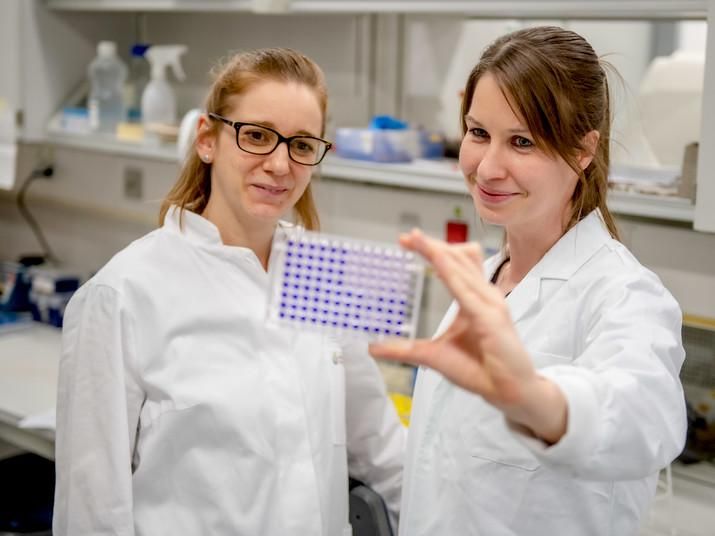Affitech's lead drug candidate AT001/r84 potent on tumours in mice studies with limited induction of side effects
Affitech A/S announced that the Company's lead drug candidate r84, which may have therapeutic application against certain cancers, shows potent activity on tumours and does not induce significant side effects in mice. This is the conclusion of a study conducted by Rolf Brekken, University of Texas, Dallas, USA, a collaborator of Affitech and a recognised expert in tumour angiogenesis. The study, ‘r84, a novel therapeutic antibody against mouse and human VEGF with potent anti-tumour activity and limited toxicity induction', was published in PLoS ONE.
The study compared human IgG anti-VEGF antibodies screened for specific VEGF binding characteristics with other therapeutics targeting VEGF - among which wasbevacizumab (Avastin®/Roche).
AT001/r84 was demonstrated to bind with equal affinity to both recombinant human and mouse VEGF and was further established as an important tool in evaluating the contribution of both tumour cell- and host cell-derived VEGF in tumour progression. The binding of AT001/r84 differed from other anti-VEGF antibodies such as bevacizumab (Avastin®) that do not recognise mouse VEGF.
AT001/r84 was demonstrated to selectively inhibit the VEGF: VEGF receptor 2 interaction by specifically blocking human and mouse VEGF-induced migration of VEGF receptor 2 positive endothelial cells without interrupting VEGF receptor 1 signalling. This makes AT001/r84 a unique tool for assessing induction of possible side effects.
The efficacy of AT001/r84 as a cancer therapeutic was assessed in an animal non-small cell lung cancer model. Compared to bevacizumab (Avastin®) the results indicated that AT001/r84 may be even more effective in controlling tumour implantation and growth, independent of dose.
In this animal model, AT001/r84 significantly reduced tumour growth and final tumour weight but did not produce any observable side effects.
Alexander Duncan, Chief Scientific Officer, Affitech A/S said: “We recently announced that AT001/r84 had entered preclinical development and I am very pleased that these results confirm our belief in the potential of Affitech's lead antibody therapeutic AT001/r84 for therapy of certain cancers. These pre-clinical results from Dr. Brekken's group show that our antibody-based drug blocks both tumour and stromal derived VEGF. Furthermore, AT001/r84 demonstrates that selective blockade of VEGF:VEGF receptor 2 interaction without interrupting the VEGF:VEGF receptor 1 signalling is potent and shows no significant systemic side effects in mice. This is a good basis for further preclinical and clinical development. We have now established a global development team and are able to fulfil our goal of completing the preclinical development of the drug candidate particularly enabling toxicology for submission of a new drug application in Russia / CIS in 2011.”
Other news from the department research and development
Most read news
More news from our other portals
See the theme worlds for related content
Topic world Antibodies
Antibodies are specialized molecules of our immune system that can specifically recognize and neutralize pathogens or foreign substances. Antibody research in biotech and pharma has recognized this natural defense potential and is working intensively to make it therapeutically useful. From monoclonal antibodies used against cancer or autoimmune diseases to antibody-drug conjugates that specifically transport drugs to disease cells - the possibilities are enormous

Topic world Antibodies
Antibodies are specialized molecules of our immune system that can specifically recognize and neutralize pathogens or foreign substances. Antibody research in biotech and pharma has recognized this natural defense potential and is working intensively to make it therapeutically useful. From monoclonal antibodies used against cancer or autoimmune diseases to antibody-drug conjugates that specifically transport drugs to disease cells - the possibilities are enormous


























































